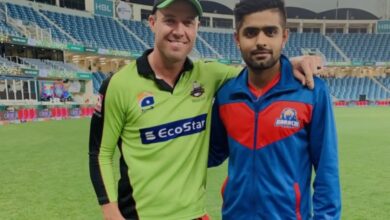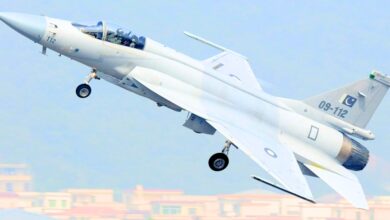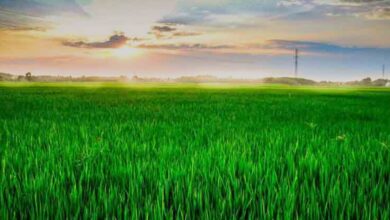
Pakistan Independence Day August 14, 2024 marks a significant milestone in Pakistan’s history, symbolizing not just one, but two moments of liberation. Muslim Indians first sought freedom from British colonial rule, and later, they fought to establish their own nation-state—what we now know as Pakistan, which was once part of the larger Indian subcontinent.
Following the suppression of the Indian Rebellion of 1857, the British Crown assumed direct control, ushering in the era known as the British Raj. This period of colonial rule persisted until Pakistan’s eventual independence in 1947. The historic Mountbatten Plan led to the partition of the Indian subcontinent, carving out Pakistan, which then consisted of West and East Pakistan, as an independent Muslim-majority nation. In 1971, East Pakistan broke away to form its own sovereign state, now called Bangladesh. Today, West Pakistan is simply known as Pakistan.
The central Independence Day ceremony takes place in Islamabad, where the national flag is proudly hoisted over the Parliament and Presidential buildings. This is followed by the national anthem and televised addresses by the President and Prime Minister, reflecting on the nation’s journey and future.
Pakistan Independence Day is celebrated as a national holiday across the country. The year 2021 marked the 74th anniversary of Pakistan’s independence.
When is Pakistan Independence Day 2024?
“Unity, Faith, and Discipline” is the guiding principle and national motto of Pakistan. The country celebrates its Independence Day on August 14.
History of Pakistan Independence Day
The birth of Pakistan stands as an extraordinary chapter in modern history, marked by its unique and unparalleled journey. Originally, Pakistan, India, and Bangladesh were part of a vast region known as the Indian subcontinent. The introduction and spread of Islam in this region disrupted peace, leading to conflicts and the oppression of Muslims by the Hindu majority. To protect the Muslim minority, intellectual movements and philosophical thoughts began to take shape following the War of Independence in 1857.
Despite the odds being against them, the determined and resilient Muslim community in the subcontinent pursued their aspirations for freedom with unwavering faith. In 1906, the All-India Muslim League was established, and on October 1st of the same year, a delegation of 36 Muslim leaders presented their demand for a separate Muslim state to the viceroy of India in Simla.
The dream of Pakistan and a separate homeland for Muslims might have remained just that—a dream—if not for the tireless efforts of one man: Muhammad Ali Jinnah. A barrister and politician, Jinnah emerged as the leader of the All-India Muslim League in 1913 and remained at its helm until Pakistan’s independence. His leadership and vision earned him the title of the Father of the Nation.
Another key figure in this monumental struggle was Allama Muhammad Iqbal, a philosopher and poet who championed the idea of a separate Muslim state. In his historic presidential address on December 29, 1930, at Allahabad, Iqbal proposed the creation of an independent Muslim state, a vision that would later become a reality. The term ‘Pakistan’ first appeared in a pamphlet titled “Now or Never” in 1933.
The journey toward independence reached a critical point on February 20, 1947, when British Prime Minister Clement Attlee announced that India would be granted full self-governance by June 1948. Following extensive negotiations with the British government and Indian leaders, the last viceroy of India, Lord Mountbatten, unveiled the ‘June Plan,’ which laid the groundwork for the subcontinent’s partition.
The plan was accepted by both the Indian National Congress and the All-India Muslim League. In July 1947, the British Parliament passed the Indian Independence Act, leading to the establishment of separate provisional governments for India and Pakistan on July 20th. Finally, on August 14, 1947, the vast British Indian Empire was divided into two sovereign states: India and Pakistan.
The partition, however, was marred by unprecedented violence and bloodshed. As the idea of a separate Muslim nation gained momentum, Hindu-Muslim tensions escalated, leading to widespread brutality. The partition tore apart families and communities, leaving behind a legacy of pain and loss that is still remembered and documented today.
In the words of Muhammad Ali Jinnah, “You are free; you are free to go to your temples. You are free to go to your mosques or to any other places of worship in this State of Pakistan. You may belong to any religion, caste, or creed—that has nothing to do with the business of the state.”
Pakistan Independence Day Around the World
| Country | Holiday | Occasion | Date |
| France | Bastille Day | Commemorating the day that the French troops stormed and destroyed the Bastille, marking the beginning of the French Revolution. | July 14 |
| Philippines | Independence Day | Celebrating the Philippine Revolution against Spain. | June 12 |
| Peru | Fiestas Patrias | Commemorating Peru’s independence from Spain. | July 28 |
| South Korea | Gwangbokjeol | Celebrating the day U.S. and Soviet forces helped to end the Japanese occupation of Korea. | August 15 |
Traditions of Day
Citizens of Pakistan celebrate Independence day zealously. The colors for the day are the green and white of Pakistan’s flag. The country’s flags are seen everywhere and fireworks displays are enjoyed. Flag hoisting ceremonies are held publicly and at private institutions across the country. Schools and universities arrange declamation contests, art exhibitions, national song recitals, and sports marathons to celebrate. Special programs are also scheduled for the observance of this day.
The president and prime minister deliver special speeches, recalling the sacrifices of the nation’s forefathers who laid down their lives for the country. The district and local authorities actively plan and execute events to express patriotism and add colors to the day. Citizens participate in face painting, donning the country colors, dressing up elaborately, lighting fireworks, and celebrating all things Pakistan.
How to Observe Pakistan Independence Day
Wear Pakistan’s national colors
The Pakistani flag displays its national colors of green and white. Green symbolizes prosperity and good fortune and white represents peace. Together, these colors can radiate positive energy. So, if you share Pakistani heritage, hoist that flag high!
Remember those who died for freedom
Pakistani independence was a hard fought battle for sovereign rights and religious freedom. Pause for the cause and remember those who died to liberate Pakistan.
Attend a local festival
All over the world, there are those with Pakistani heritage who celebrate Pakistan Independence Day with bursts of color, great food, lively music, and warm friends. Get inspired and create your own mini-festival at home!
5 Incredible Pakistan Facts That Will Instantly Make You The Smartest Person In The Room
- Malala Yousafzai: A Taliban gunman tried to murder this Pakistani teenager-turned-activist as she rode a bus home from school. Two years later Malala received the Nobel Peace Prize for her global efforts on behalf of girls striving to receive an education.
- It’s home to the Eighth Wonder of the World As a testament to China-Pakistan friendship, the Karakoram Highway, connecting the two countries, has an altitude 4,800 meters. It’s the world’s highest road blessed with picturesque, natural views, including mountains, glaciers and rivers.
- Even after independence, it follows this British custom On Pakistan Independence Day, there are “changing of the guard” ceremonies at national monuments, including the mausoleum of Muhammad Ali Jinnah who is considered to be the founder of Pakistan.
- It’s a night for light From candles in their homes, to oil lamps on the streets, to extravagant fireworks displays, Pakistanis pay homage to the bright light of independence during the evening hours of Pakistan Independence Day.
- The world’s largest volunteer ambulance service is there — who knew? Since 1997 the Edhi Foundation has carried the distinction of overseeing the world’s largest, volunteer-run ambulance service — which happens to be located in Pakistan.
Pakistan Independence Day timeline
1858

British Take Control of Indian Subcontinent
The Government of India Act results in the British Crown assuming direct control over much of the Indian subcontinent, including the areas known today as Bangladesh and Pakistan.
August 14, 1947

British Rule Ends
It’s the end of the British Raj (the period of British rule over India, beginning in 1858) and, in the aftermath, divisions in the subcontinent results in Pakistan’s hard-fought win in gaining independence.
1948
End of an Era
The founding leader of Pakistan, Muhammed Ali Jinnah, dies.

March 23, 1956
Pakistan Day
Pakistan transitions from a dominion to a republic, officially becoming known as the Islamic Republic of Pakistan.

Why Pakistan Independence Day is Important
Independence means celebration
Countries around the world have fought hard to win freedom and status as independent nations. The Pakistanis not only fought for independent sovereignty but they also battled for religious freedom. On Pakistan Independence Day, Pakistanis celebrate their many personal, religious and national freedoms.
Muhammad Ali Jinnah led the fight for independence
Several key leaders pushed for Pakistani independence — Muhammad Ali Jinnah being key among them. Jinnah, Karachi-born and London-trained as a barrister, became an organizing voice for independence in Pakistan as part of the Indian National Congress during the early years of the last century. Later, Jinnah helped to form coalitions fighting for Pakistan to be an independent Muslim nation-state. Today Muhammad Ali Jinnah is revered as the first governor-general of Pakistan, who was instrumental in shaping the country’s policies and priorities after independence.
Religious freedom is guaranteed under the constitution
Imagine being forbidden to practice your religion because it’s illegal. Pakistan Independence Day marks gratitude for the nation’s Muslims because their right to freely practice Islam is guaranteed under their constitution. But in Pakistan today, there are several Muslim sects, as well as other religious minorities, who face persecution and daily threats of violence or death.






